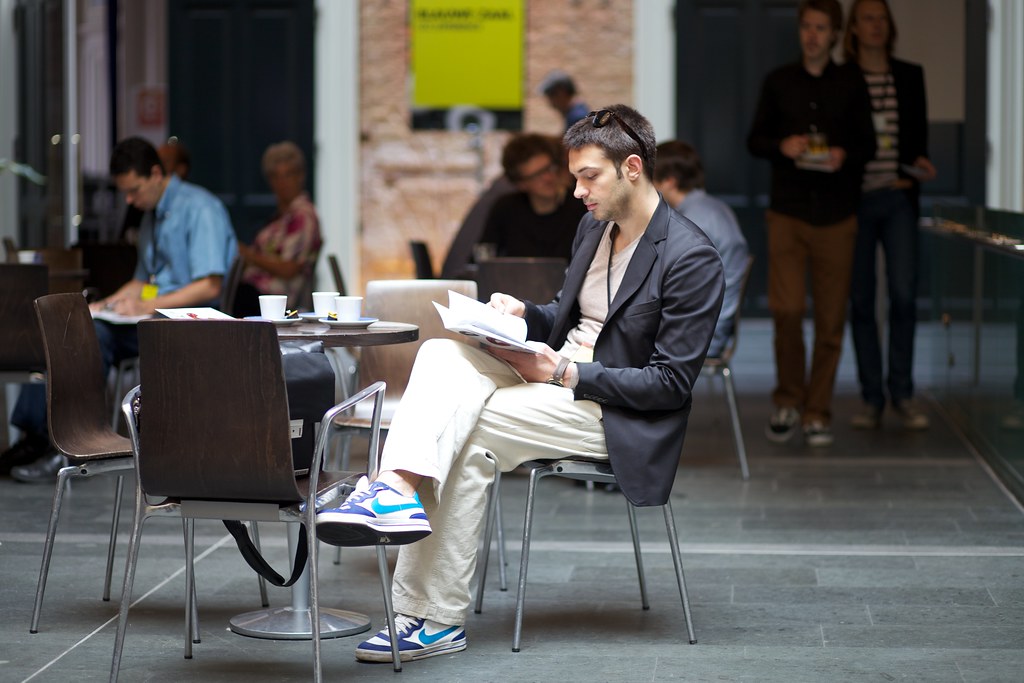We’ve all heard the clichés about “thinking outside the box” and being more innovative and creative. But as trite as those phrases may sound, the underlying concepts they represent are absolutely vital for human progress and our dignity as a species.

In a powerful speech, an insightful presenter made a compelling case for why we must actively cultivate our ability to generate novel, unconventional ideas that challenge conventional thinking. He argues this isn’t just a luxury or nice-to-have skill, but a necessity for driving meaningful change and growth.
Think about it – we are all nodes interconnected in the vast network of the modern world. We are inundated with the same information, the same news, the same perspectives. If we all simply absorb and regurgitate this convergent data, what separates any of us? Where does our unique value and contribution as individuals lie?
The answer, according to the speaker, is in what we are able to create and generate from that shared foundation of knowledge. Our ability to combine ideas from disparate domains, to turn information on its head through divergent thinking, to make novel associations and forge new paths – this is the essence of human ingenuity. It’s what allows us to evolve beyond just being receptacles for an echo chamber of ideas.
However, finding those innovative sparks is far easier said than done. Our minds inevitably construct “boxes” around our thinking based on our education, experiences, and patterns we’ve established. Whatever falls inside those boundaries feels safe, familiar, and undisruptive. But that’s also where unconventional thinking goes to die.
To break through those self-imposed constraints, we need mechanisms to inject “divergent information” – thoughts, stimuli, or perspectives that don’t fit our preconceived notions. Seemingly irrelevant or even wrong ideas can jolt us out of our streamlined convergent thinking patterns. Combining two totally unrelated concepts can sometimes reveal inspired new applications.
The speaker illustrated this creative process with an imaginative example about re-thinking the format of TED conferences. Instead of the usual elements like good speakers and grand settings, he ventured “out of the box” by exaggerating or flat-out removing those standard components. This led to delightfully bizarre yet thought-provoking ideas like having talks at football half-time shows or having speakers present each other’s speeches.
While humorous, those examples get at the heart of why going against the grain of conventional wisdom is so important yet so challenging. Our initial reaction is to reject anything too unfamiliar or impractical based on our existing mental models. We wonder “who am I to come up with such an outlandish idea?” Or we assume if it were any good, someone else smarter would have done it already.
But as the speaker emphasized, we have to resist those self-sabotaging instincts. Truly creative ideas always seem a little crazy at first, because by definition they depart from the norm. We have to give those seedling notions room to breathe and develop through “long thinking” rather than prematurely judging them.
Easier said than done when we face such psychological hurdles and are biologically hardwired to prefer the safe conformity of the box. Not only do we have to give ourselves permission to think divergently, we need supportive environments that celebrate and encourage going against the grain.
Too often, workplace cultures and authority figures punish mistakes or deviations from the agenda. That inevitably leads people to rein in their eccentric ideas and play it safe. The speaker stressed the importance of overhauling that attitude – of intentionally building organizations that mix disciplines, reward experimentation, and integrate diverse perspectives. Only then can we start harnessing our natural human creativity.
Ultimately, creative thinking isn’t about pulling a random crazy idea out of a hat. It’s a skill, born from diligent practice and mindfully applying techniques to look at things from new vantage points. It requires conscious effort to step outside our comfort zones and detach from the inertia of conventional thinking patterns.
It can be awkward, it can seem unproductive at first, and you have to push past the psychological block of feeling somehow unqualified as the dreamer-upper of unconventional ideas. But that mental muscle of creativity is an indispensable human trait that separates us from other intelligent beings.
Without our capacity for novel, innovative thinking that connects disparate ideas into groundbreaking new solutions, we risk stagnating and succumbing to the boundaries of our own minds. Whether it’s rethinking business models, re-envisioning social systems, or pondering humanity’s next big philosophical leaps, nurturing a culture of out-of-the-box thinking is vital to driving a life of growth, purpose and progress.
So have the courage to introduce some “divergent information” into your thought process every now and then. Challenge assumptions, think metaphorically, and give yourself space for long, winding cognitive journeys outside the prescribed box. That’s where the magic happens for our curious and creative species.